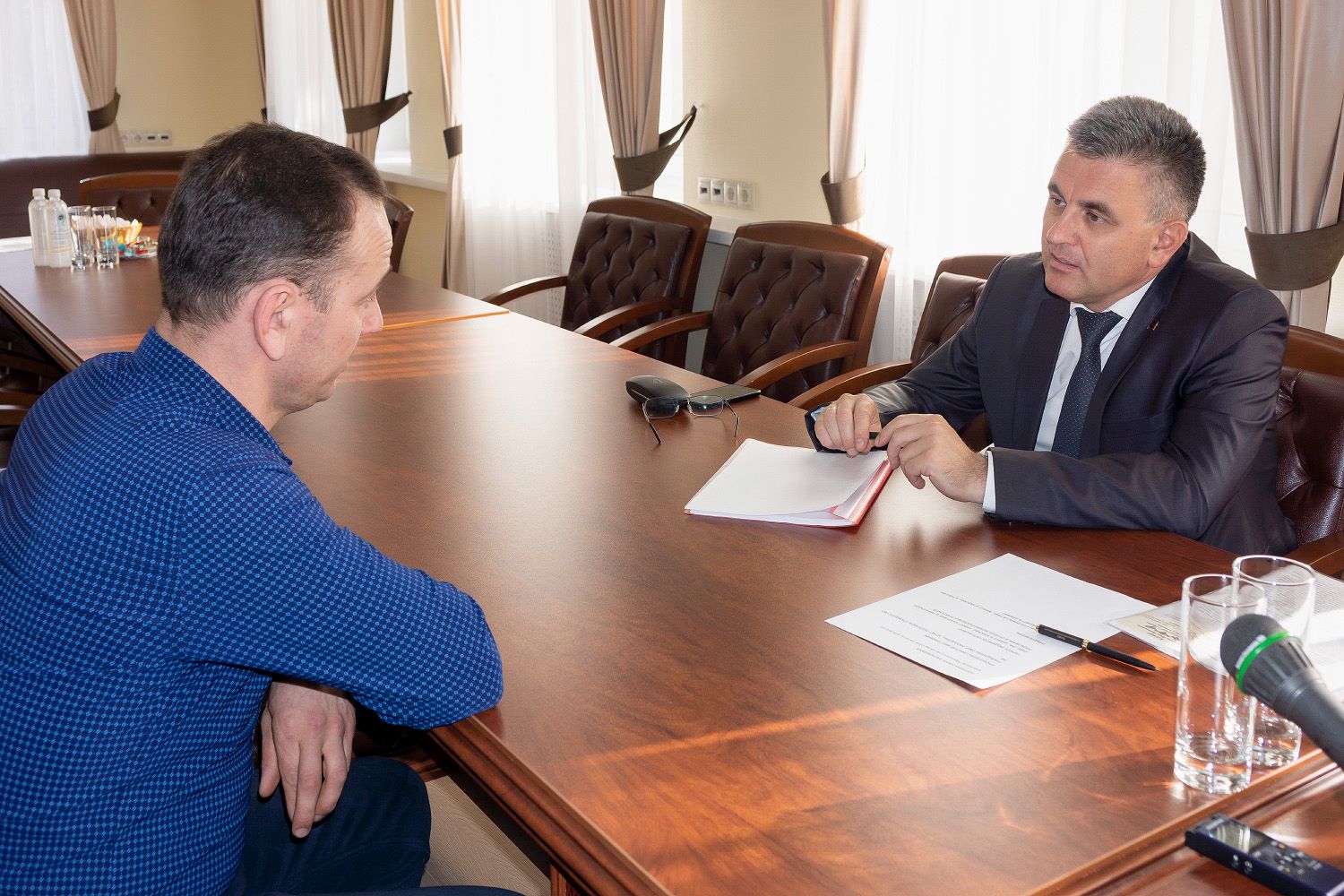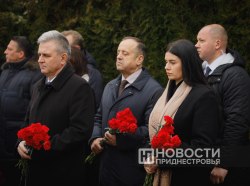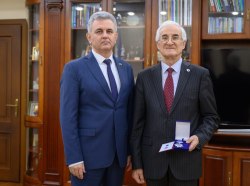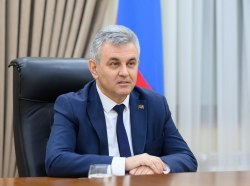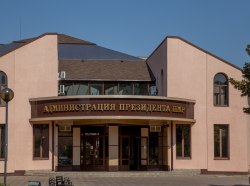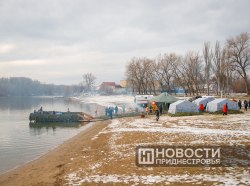The Official Representative Office of the Pridnestrovian Moldavian Republic in the capital of the Russian Federation Moscow was opened early this year. The institution functioning in the form of the public organization “Fund for the Development of Social and Cultural Relations “Pridnestrovie” is a structural unit of the system of diplomatic service of the PMR. Its functions are to assist Pridnestrovian residents in establishing cultural, humanitarian, socio-economic, business, commercial, financial ties, maintaining direct contacts with the authorities in Moscow, interacting with public organizations, sharing information. The representation is a kind of contact center for both officials and public activists as well as for ordinary citizens. A number of significant events have already been organized. The Head of the representative office participated in 35 meetings and forums. About a hundred Pridnestrovian residents living in Russia applied for assistance during a month and a half.
The PMR President Vadim Krasnoselsky on a working visit to Moscow held a reception for citizens. Working conversation with the leadership and staff of the Representative Office was before communication with compatriots. The PMR President keeps on personal control the activities of this institution. He noted that it should not be formal. Pridnestrovians have been waiting for opening for several years and expect to get real support, Vadim Krasnoselsky emphasized. According to him, compatriots should know that representation is a part of their homeland, and here at the right moment will extend a helping hand. Speaking about the problems that brought Pridnestrovians living in Moscow to the reception, Vadim Krasnoselsky noted that they are similar to the issues of concern to the residents of the republic in Pridnestrovie. These include obtaining citizenship - the Russian Federation and Pridnestrovian Moldavian Republic, registration, registration of ownership, medical assistance, payment of utility services, military service - both Pridnestrovian and Russian. “All questions are from life. I constantly hear them from people in Tiraspol, they are asked in Moscow. The problems are the same. It is important that the citizens of Pridnestrovie can ask them here in Moscow, and they do not need to go to Tiraspol for this. It happened that Pridnestroviansians were far from their homeland. They have families, houses in Pridnestrovie. It is impossible to break these ties”, the PMR President emphasized. He recalled that the staff and the Head of the office receive citizens daily.
The Head of the Pridnestrovian representative office Leonid Manakov noted that more often young people and middle-aged people ask for assistance. The problems of many are similar. Living conditions outside the republic are not always comfortable. According to Leonid Manakov, appeals are received not only from Pridnestrovian Muscovites, but also from residents of other Russian cities. Representatives of the representative office keep a file of appeals, recording the data, including on the profession, of each applicant. This information helps to resolve employment issues.
Compatriots come to the office not only to ask for help, but offer their services. The lawyer of the Moscow Regional Chamber of Lawyers Nina Averina appealed on the issue of pensions (record of seniority) and immediately noticed that she was ready to provide all possible assistance to the advisory nature of those in need of legal assistance.
Pensioner Lyudmila Garbuz, who left Pridnestrovie more than three decades ago, following a serviceman husband, asks for help in obtaining Pridnestrovian citizenship. She told that she worked as a general practitioner in a disabled hospital in Tiraspol many years. She is dreaming in declining years to return to the Pridnestrovian capital. She says she is ready to work as a medical volunteer. During the conversation with the PMR President, the topic of payment of utility bills was raised. Lyudmila Evgenievna, the owner of a Tiraspol apartment, seeks to make payments in a timely and efficient manner, but the distance makes it problematic. The interlocutors said that a simple and affordable payment mechanism was needed. It would be good to have a single, possibly advance payment via banking systems.
Specific signals are coming from citizens in private. It allows forming a complete picture of the life of Pridnestrovians in Russia and to develop mechanisms to improve the conditions of their stay outside the republic.


